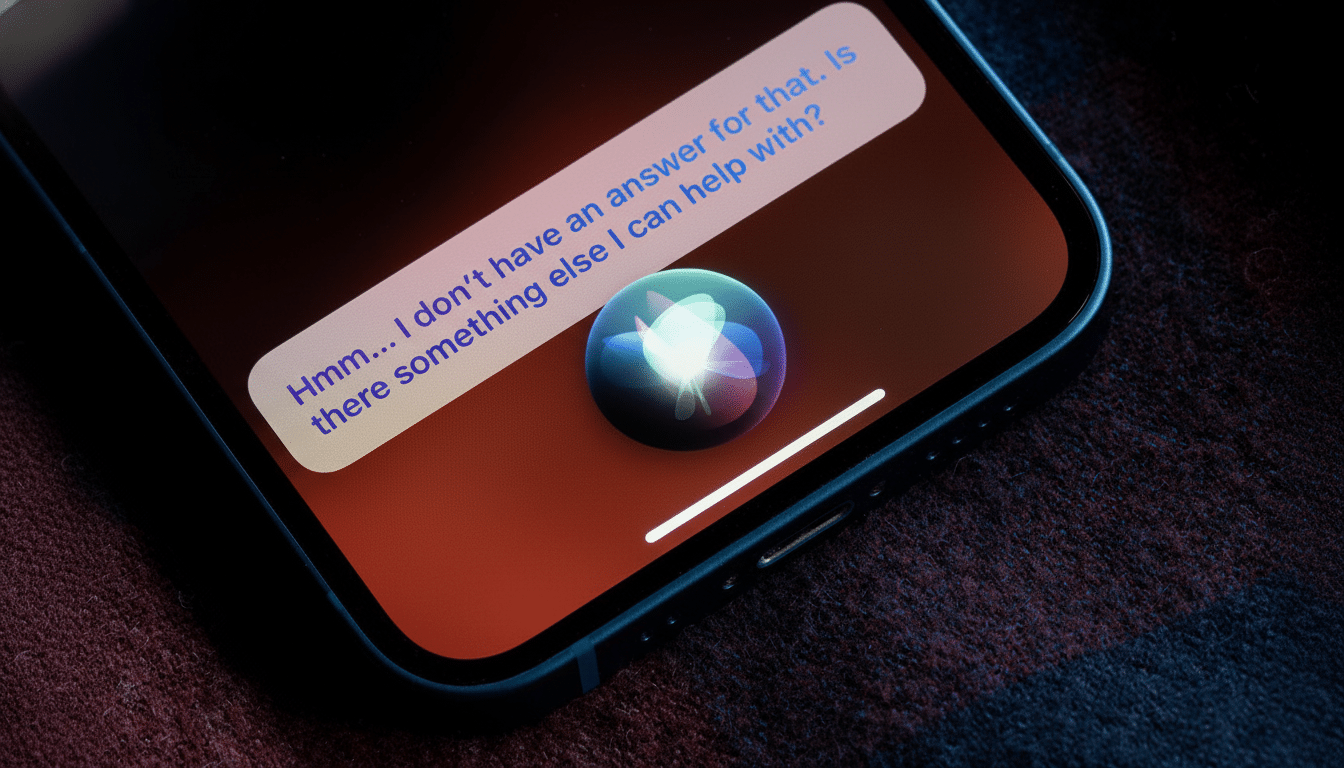Dont count on Apple unveiling a fully generative Siri at their next keynote, but rather a shiny piece of hardware filled with updates for the software. As a number of industry reports and recent Apple briefings indicate, while the long-promised “new AI Siri” is indeed being developed, it’s far from being ready for primetime.
Why Siri reboot isn’t here yet
Re-architecting a voice assistant to be powered by modern large language models is more than just a UI facelift. Per reports from Bloomberg and the New York Times, Apple’s teams have been reconstructing Siri’s core with generative AI while walking the fine line of performance, privacy and dependability. Apple’s “Private Cloud Compute” design—discussed by the company—distributes computation between on‑device models and Apple‑controlled servers, increasing the bar for security audits and latency targets. That engineering lift complicates the timing, but better fits Apple’s privacy stance.

There’s also the scale problem. Apple revealed that it has over two-billion active devices, and any foundational change to Siri must degenerate gracefully on previous hardware while unlocking new features on the most recent chips. Some of Apple’s new intelligence features in iOS 15 already need modern silicon, meaning a completely generative Siri will likely hit in steps rather than being flipped on everywhere overnight.
What Apple will probably show instead
But don’t confuse a belated Siri reboot with a hushed AI tale. Also, anticipate Apple to tout incremental Apple Intelligence gains that are easier to ship at scale: better writing tools, smarter notification summaries, better Visual Intelligence for screenshots and photos, and even better translation on iPhone and AirPods. They put into Apple’s on-device-first strategy, and they are features that can be added onto without needing to rewrite the assistant’s entire decision engine.
In the case of Siri handoffs to third‑party models, it’s probable that will continue acting as a bridge. Apple has already given a peek at optional ChatGPT help in Siri and broader system writing tools, and venues like 9to5Mac and The Information have reported that Apple is still in discussions with major model suppliers. Don’t be surprised if Apple pitches these as smoothly connected, user-approved options preserving identity and context — handy when it comes to more complex queries until Apple’s own models grow up.

Rivals set the bar — and the trap
Recent releases by Google and Samsung have underscored AI as a front-and-center feature, with Gemini-based capabilities adding “Galaxy AI” features that range from summarisation to translation and editing via images. These demos create demand but also reveal reliability gaps and cost questions which Apple seems determined to ignore. Apple tends to follow on headline demos, and then differentiate on durability, battery impact and privacy once the tech is durable enough for daily use.
The competitive lens is key here: a conversational Siri that consistently gets context across apps, performs multi-step tasks and respects privacy could be a more alluring feature than any individual party trick. But it also risks hallucinations, sugarplum-induced blog posts and cloud-dependency which would not meet the holy branding promises of Apple.
Reading the roadmap
Indications suggest a phased approach. Anticipate Apple to continue layering the AI into system experiences—Mail triage, Photos cleanup and notification management, as well as developer APIs—while also slowly building on Siri’s reasoning and app control. Bloomberg: Apple Convinced Me, I Know Nothing In the recent weeks, we learned about internal work to let Siri consistently do things across apps and to understand richer context, and that does seem to line up with what developers will need if they are to engage: predictable, testable automation hooks coupled with better language understanding.
When the Siri reset does come, keep an eye out for the following three tells: consistent offline response for common requests, transparent hand-off to Apple’s own cloud for heavier tasking, and clear consent flows when tapping third-party models. That mix would strike the right balance between utility and trust — arguably the only viable way to scale an assistant across billions of devices.
The takeaway: Apple’s upcoming event likely packs plenty of AI‑tinged updates and new hardware, but a genuinely new, generative Siri is still baking. Certainly, that might be frustrating for fans who want to see flashy AI unveilings, but it’s in keeping with Apple’s track record — ship the parts, demonstrate reliability then flip the larger switch once the ecosystem is ready.

